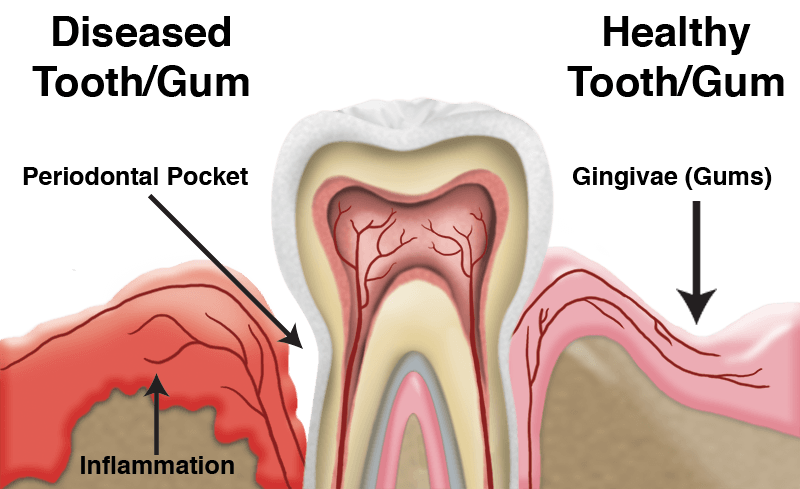We Offer Various Periodontal Dentistry Options to Serve Our Las Vegas Patients

Call Now : 702-486-5107
Gum Disease Treatment
Gum disease has traditionally been treated by eliminating the gum pockets by trimming away the infected gum tissue and by re-contouring the uneven bone tissue. Although this is still an effective way of treating gum disease, new and more sophisticated procedures are used routinely today. One of these advancements is guided bone regeneration, also referred to as guided tissue regeneration. This procedure is used to stabilize endangered teeth or to prepare the jaw for dental implants.
As periodontal disease progresses, pockets of degenerated bone develop in the jaw. These pockets can promote the growth of bacteria and the spread of infection. To address these pockets, Dr. Maen may recommend tissue regeneration. During this surgical procedure, the pockets are cleaned thoroughly, and a membrane is installed between the soft tissue and the pocket in the bone. Some of these membranes are bio-absorbable and some require removal. The membrane covers the pocket so that fast-growing soft tissue is blocked, and slower-growing bone can begin to grow, or “regenerate” itself.
The effectiveness of the procedure generally depends on the patient’s willingness to follow a strict postoperative diet and careful oral care. Dr. Maen will help you determine if bone regeneration surgery is right for you.
Call Now : 702-486-5107
Gum Recession Treatment
It is relatively common for patients to experience some degree of recession. Recession is the process in which the soft tissue migrates apically, or down the tooth. Recession exposes the root surface of the tooth, which can be sensitive to thermal, chemical, and tactile stimuli. There are several ways to decrease the sensitivity that patients experience. First, is through the use of a highly concentrated fluoride toothpaste. The fluoride in the toothpaste decreases sensitivity by occluding the dentinal tubules. Second, is through the use of Sensodyne toothpaste. Sensodyne contains potassium nitrate, which works much the same way as fluoride, by attempting to occlude the dentinal tubules. These toothpastes are the starting point for decreasing tooth sensitivity, but with varied success rates.
At Perfect 32 Dental Care, we have a specific product designed to decrease root sensitivity. This product is known as Gluma. Gluma creates a chemical reaction within the root surface of the tooth causing proteins to accumulate, which in turn, occludes the dentinal tubules, thus decreasing sensitivity. This effect, on average, lasts several months, at which time the procedure can be repeated. The best option for severe root sensitivity is a soft tissue surgery known as a connective tissue graft. In most cases where there has been recession of the soft tissue but no bone loss, we can actually regenerate, or grow the soft tissues over the exposed root surface. In severe cases of root sensitivity, where the previously mentioned treatments are not an option or have little effect, a glass ionomer restoration can be placed to cover the exposed root.


